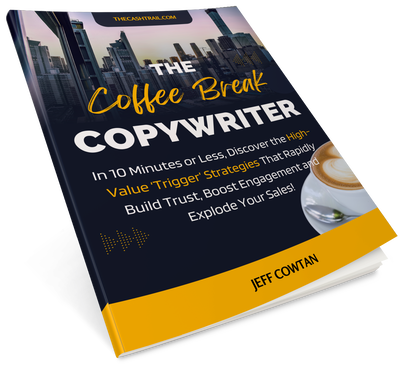We go through school, college, perhaps even university but once it’s done, for many, that’s it, the learning is over and getting on with life is the main goal.
Of course in the ‘fast-paced’ modern world where the lure of ‘Netflix’ or the iphone takes over at the first opportunity, it’s no surprise that learning often gets shoved to the back of the ‘to do’ list!
However, continuing to learn when we don’t have to, is something that can make such a difference to pretty much everything we do and with just a little ‘tweak’ in your thought processes, you can start learning new stuff that can bring benefits to your life in ways you’ve probably never even considered!
In this post I’d like to share a few tips that I use that have been really helpful when I try to learn new things and why they’re worth doing!
#1 – Choose to learn
When we’re required to learn at school, college, university etc (… or even when we’re sent on a training course at work let’s say), the pressure to get it done can take the edge off, to such an extent that you may never actually learn as much as you’re capable of.
However, when you make the decision to want to learn, the desire to know more can actually become exciting and no longer feel like a chore.
For example, when I was in my early thirties I saw a guy playing a banjo at an open mic night in a local pub and said to a friend I wish I could play.
He said, “why don’t you learn?”

At first I just shrugged him off and said I was too old but after my friend suggested I was talking rubbish I went out the next day and bought myself a lovely brand new banjo.
Long story short, as soon as I got it home I absolutely loved it and ended up practising for hours and hours a day (… yep, drove my family nuts)!
Now, while I’m no Earl Scruggs, these days I can knock out a nice bit of Bluegrass (… some people might say murder it) but at one time I even got to the stage where I taught it for a bit to make a little extra cash.
The point is, no-one made me do it, I chose to and the results spoke for themselves!
It’s the same with this website …
No-one’s forcing me to create the content.
Everything I write about is something I find interesting, useful or potentially profitable and not only do I want to learn more about it but I want to share it as well.
Now one of the benefits to me of wanting to learn this stuff is that occasionally I get the odd affiliate commission from doing so (… which is a bonus by the way), but that wouldn’t happen if I hadn’t chosen to learn about it in the first place!
#2 – Give yourself permission to stop!
I’ve found this so useful, in fact, even today as I’m writing this article I used this very principle which not only applies to learning, but pretty much anything that requires you having to do something (…working, playing etc).
Getting started on the task at hand is often one of the most difficult things to do but if you give yourself permission to stop after a few minutes, especially if you’re not ‘feeling’ it, you may be surprised at what can end up happening.
By not pressuring yourself into continuing with whatever it is, if you don’t want to, you can often find yourself in a state of mind where you actually want to carry on, sometimes even forgetting that you gave yourself permission to stop!
Obviously the real problem here is that you just needed the proverbial kick up the backside to get started but this idea can really help overcome the fundamental hurdle of getting going.
#3 – Get rid of the phone!
Pretty obvious this one.
It’s common knowledge these days that most of us are obsessed with social media, texts, messages or any other distraction that our phones throw at us and there’s no doubt, it all hinders when we’re trying to learn new stuff.
The simple answer is to leave it in the other room!
More effective learning requires little or no distraction so leaving your phone in any room other than where you are, will make a huge difference (… this applies to the telly as well)!
#4 – Let’s start at the very beginning

Julie Andrews was right!
A classic example of this when I was trying to understand how to use Canva, a fantastic programme that helps people (… especially beginners) to develop graphical media for publication (… I’ve written a review of it here if you want to know more).
At first I jumped in with both feet and tried to ‘wing it’ by just having a play around to the point that I almost lost interest when I couldn’t get something to work in the way I wanted it to.
This could have been a major mistake because I could have missed out on this brilliant platform but luckily I decided to go back and watch a few tutorials on the basics.
As soon as I did, the rest of what I needed became completely intuitive and now I just love it!
The take out from this is to avoid skipping the early bits!
Read the introductory chapters of a training manual for example or if a subject isn’t really making total sense, go back to the previous level and refresh yourself on what you’ve learnt already.
Going ‘back to basics’ is never a waste of time. Even experts in most fields do it from time to time and when you get the fundamentals right, you’ll pick up more advanced stuff that much quicker.
#5 – Use YouTube!

Many people, especially older generations are often surprised when they find out YouTube isn’t just about home videos and it’s never even occured to them that it’s an absolutely amazing platform to learn from!
In fact nowadays it’s probably one of the first places you should look when learning about pretty much anything because one thing’s for sure, virtually everything has been done before and there will be someone who’s made a video about it on YouTube.
Besides it can be a lot of fun when you actually see videos on your ‘chosen’ subject which can often make it that much more interesting when you see how other people have approached it.
Beware the YouTube rabbit hole though!

It’s so easy to waste time when you’re presented with no end of other videos to watch on the same subject and before you know it, you’ve done hours being entertained which could have been better spent using this and the other tips in this post!
#6 – Teach it to others

Teaching something you know a little about already is one of the most powerful ways to learn.
This is because not only does it focus your mind on what you know (… or don’t know) but you have to break everything down into ‘chunks’ that’ll allow your ‘student’ to understand.
This in turn consolidates what you’re teaching about in your own mind.
It also stands to reason that since you have to be more familiar with your material, if you’re asked questions, you can find out more yourself and therefore improve what you know already.
Now the usual problem here is that it’s really easy to think you’re not good enough to teach, but invariably that’s just not true.
Very often professional teachers or experts forget what it’s like to ‘not know’ so they may not understand how the person who doesn’t necessarily get it yet, is feeling.
But if you’ve only recenty learnt something or are currently engaged in the subject at a level that’s only slightly ahead of those you’re trying to teach, you generally have a better understanding of what it’s like to be in that position, because you were only just there recently!
Ultimately, teaching can be an incredibly rewarding way to learn yourself, especially when you realise that others are benefiting from what you’ve already learned as well.
#7 – Actually do it!
Have you ever heard anyone say that the best way to learn a new language is to go and live there?
The thing is, it’s true because there’s no doubt that when you put into action what you’re trying to learn, you naturally absorb more.
This is because, both consciously and subconsciously your brain is using other skills and piecing everything together without any extra effort from you.
For example if you try and learn a new language purely from a book or even by listening to audio, the chances are it’ll take much longer for you to become proficient where as if you’re regularly using the language with a native speaker, you’ll be picking up little nuances and understanding that you just wouldn’t get otherwise.
It’s the same with learning an instrument.
It’s all very well learning the theory and understanding how the instrument works but if you want to learn to play, you have to get on and use it!
The point is, it’s all about immersing yourself in the subject.
By actually doing ‘it’, whatever it is, wherever possible, you’ll learn much quicker when you actually use the skill!
#8 – Test yourself
When we talk about testing most of us think of it negatively in the context of exams, pressure to get good grades or simply getting judged on something or other.
However, by thinking of it positively and testing yourself regularly on what you now know can make a HUGE difference to what you actually take in …
In fact without self-testing you’ll more than likely just forget everything you’ve learned already!

Self-testing forces you to recall rather than just fill your brain with stuff that just gets forgotten in no time if it’s not used.
Of course I’m not talking about full on exam type testing!
I’m referring to something called active retrieval (… which there have been plenty of studies on).
The principle behind it is to not concentrate purely on getting information in (… re-reading, reviewing, taking notes etc) but significantly increasing learning from getting information out through retrieval practice.
For example if you sat down to learn something which was based on what you learned yesterday, rather than going back over your material and just re-reading, ask yourself, “what did I learn yesterday?”
By using recall in this way and subtly testing yourself regularly, it’ll boost your learning no end!
Conclusion
I love learning.
These 8 tips have not only helped me continue to learn more effectively but they’ve really helped me enjoy it too!
Learning is good for you. It keeps your brain active and helps towards keeping you younger in mind, body and spirit.
Personally I rarely read fictional novels.
Not because there’s anything wrong with them and I’m sure there’s plenty of research into why reading them is good for you.
But for me, I’d rather spend my time reading, watching or listening to stuff that I can learn from, that can be used practically to benefit how I live my life!
Unfortunately, too often people say they don’t have time to learn or real life just gets in the way.
If that’s you then maybe it’s time to turn off Netflix, leave the phone in the other room and start enjoying the new benefits learning can bring to you!

Who’s Jeff Cowtan? Copywriter, occasional blogger and fledgling YouTuber! As long as I can remember I felt if other people could be successful, why can’t I?! It’s why I love helping others with the same mindset as me to break away from convention and realise they don’t have to trade time for fixed amounts of money, in order to get where they want to be!

